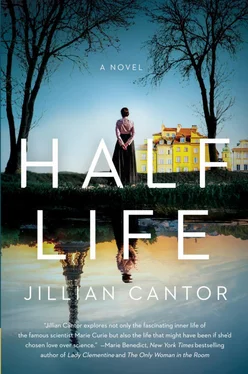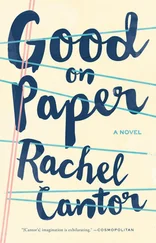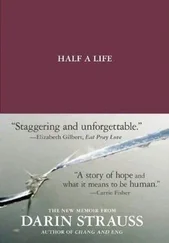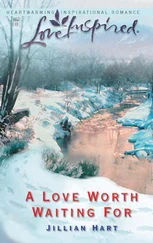“Come, kochanie , take a ride with me.” He stood, putting his book and pipe down.
“Now? It’s late. It’s almost dark out.” Besides that, I was exhausted from standing in the lab all day.
He walked to me and gave me a hug. “So, it is late?” he said into my hair, his breath tickling my neck. “Why not? We are still young.”
I laughed at the absurdity of him believing us to be young , but then I felt a sudden surge of energy, and I wanted to ride. I wanted to feel young and free and light again. I got on the bicycle, and I began to pedal down our street.
“ Kochanie , wait. Slow down! You are too fast,” he called after me, laughing, sounding like the young man he once was in Szczuki. Both of us like the young people we once were.
I pedaled and pedaled, Kaz and the wind behind me, meandering through the streets of Krakow, through the gates of the university, not stopping until I was back at my lab. Kaz pedaled in behind me, breathing hard but smiling. “Did you forget something?” Kaz asked, motioning toward my lab.
I shook my head. It was true what I told Pierre, that I liked working alone, liked being in charge of my own results. But I had accomplished something earlier that I wanted to share with someone else now. “I want to show you what I have been working on,” I told Kaz, putting my bicycle down on the grass.
“Now? But it is too dark to see.”
I held out my hand for him. He hesitated for only a moment before he took it, and we walked into the science building. We climbed the stairs, walked inside my tiny lab. It was very dark, and he reached for the lamp. “Don’t,” I said, gently pulling back his hand.
“But I can’t see what you’re doing in the dark,” he insisted.
“No, Kaz, look.”
I gently turned his shoulders so he was facing the combustion chamber, where, a little while ago, I’d left mercury in an electrically charged tube. I’d finally gotten the electric charge right, lighting the mercury into fire. In the absolute blackness of this night, the mercury fire glowed, making my dark, small lab alive with an ethereal silvery-blue firelight. Here it was, right in front of our eyes: the key to Ola Mazur’s detonation device. Blue and alive. Otherworldly. The last sliver of dusk.
“Oh, kochanie ,” he said, staring at my mercury flames. “Look what you have done!” He stepped closer to the combustion chamber, and his face illuminated blue and gold. “It’s the most beautiful thing I’ve ever seen.” And it was.
America & Paris, 1921–1922
Our voyage across the Atlantic feels painstakingly long, and I spend most of my time aboard the RMS Olympic in my suite, feeling dizzy. Ève and Irène leave me, to enjoy the extravagant meals and the views with Missy, who traveled to Paris to accompany us to New York. Then they come back periodically to check on me. They cluck likes hens, worried I haven’t been eating enough, getting enough exercise, haven’t been having fun .
“This is not vacation,” I tell them, more sharply than I mean to. “This is work.”
After all, a deal is a deal. In less than a year’s time, Missy has raised her 100,000 dollars, the women of America coming through with their donations just as she believed they would. I suppose I underestimated her, the way people have been underestimating me my entire life. And the fact that she pulled this off makes me actually admire Missy. I am thrilled that I will soon have another gram of radium for France. But I hate the fact that I have to undertake such a journey: this transatlantic voyage, to be followed by a seven-week speaking tour of America, stopping at women’s colleges, accepting honorary degrees. We will end in Washington, DC, at the White House, with the presentation of my new gram of radium by President Harding. I tell Irène and Ève this is work , but what it truly feels like is a distraction from my real work in the lab. I’d give anything to be back there instead.
The truth is, I can barely see now, and I’d confided as much to Missy in a letter last month as a way to perhaps get me out of this journey, after all. But then instead she wrote me back to tell me she set up an appointment for me with a specialist in New York. And now that feels more than half the reason for taking this voyage in the first place. I want my radium. Yes, I do. But more, I need my eyes back. I need to be able to see again in the lab, or the radium itself will be useless to me. And all the doctors I’ve seen in Paris have told me nothing useful but that perhaps I should retire. They say it is the radium and the X-ray exposure during the war that is causing me such problems in the first place. But I am still much too young to retire from the lab. My lab is my life; my work is my entire world. What do I have left if I am forced to leave it?
“Marie,” Missy says to me, trying to cheer me up on the journey. “So many women in America, they adore you. You inspire them. They are so excited to meet you. How wonderful this will be for you to get so much attention!”
What is it she wrote me once, about the unimportance of people ? Why do they care about me? They should care about the science, the radium.
“They do!” Missy promises me. “How do you think I managed to raise all this money in just a few months’ time?”
But Missy doesn’t understand the way this trip looms ahead of me in darkness, the way I dread all the talking and the social interaction and the press. Oh dear God, the press. Missy has promised me there will be no mentions of my scandal with the Langevins, saying no one in America cares about that sort of thing. But once I am halfway across the Atlantic, the ocean surrounds me, the rocking of the boat across the water makes me dizzy and ill, and I wonder how I have gotten myself into this. What I wouldn’t give now for my eyesight and a simple anonymous existence, toiling away my days in the lab.
WHEN AT LAST WE DOCK IN NEW YORK CITY, I DRESS IN MY old comfortable black dress, but I adorn myself with a new and modern taffeta hat that Ève picked out for me before we left Paris. I feel ridiculous in it, but before I can change my mind and take it off, the press is already waiting, swarming, shouting for me: Madame Curie. Madame Curie!
I hear them over the buzz in my ears, see a horde of them gathering through the fog and film of my eyes. And suddenly I am getting off that train from Brussels again, my stomach filled with that never-ending pain and loss.
It is hard for me to breathe, and I let Missy and Irène and Ève do most of the talking. I sit in a chair in between them, trying not to cry. Answering only a few questions about radium.
The next morning the New York Times prints the most egregious front-page headline: MME. CURIE PLANS TO END ALL CANCERS.
“This is not at all what we told them.” I wave the paper around at the dining table in Missy’s elegant Greenwich Village apartment, nearly knocking over my china coffee cup.
Ève steadies my cup, takes the paper, reads the article, and looks up. “They call me the ‘girl with the radium eyes.’” She laughs, delighted.
“That’s preposterous,” I snap at her. “If you had radium in your eyes, it would blind you.” Though even as I am saying it, I understand how apt it is. How beautiful, how phosphorescent my youngest daughter is. I should tell her that, but I don’t. That’s not the point.
I try to remember now my exact words about radium and cancer at the dock, but it wasn’t this. I’d only said that I planned to use my new gram of radium to experiment with new cures for cancers, never promising I can cure them all . “I’m here one day and already the press is lying about me. I need to go back to France. Irène, buy us tickets for the next boat!”
Читать дальше









